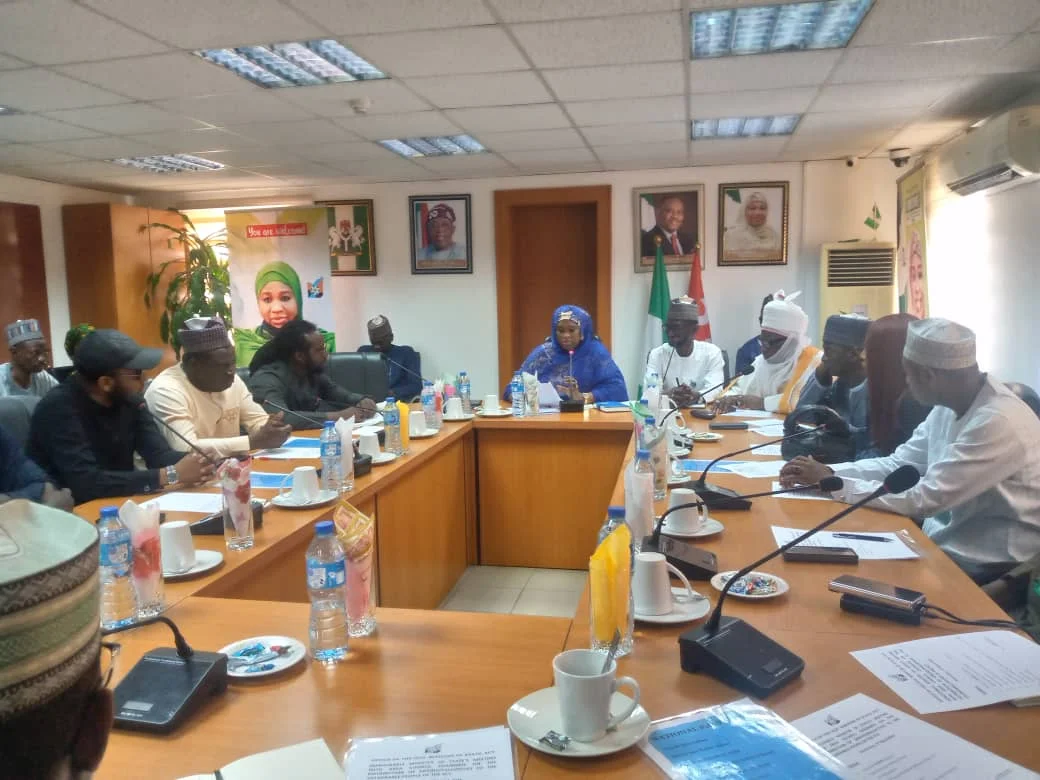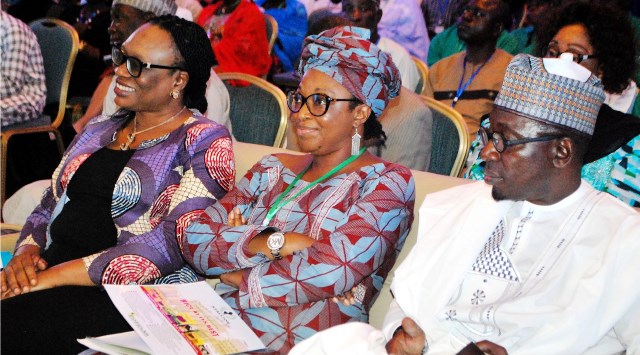Business
Trans-Border Traders Reject Naira Over Depreciation
Following the depreciation of the Nigerian currency (Naira) in the past few months, trans-border traders have started rejecting the currency, thereby constituting further trade setbacks.
The Tide’s source’s findings across the Seme border revealed that the traders on both sides now prefer either the CFA or the domestic currency of the non-francophone countries.
Until now, Naira ruled the sub-region as the dominant currency accepted as a medium of exchange by traders across the borders due to the high volume of trade between those countries and Nigeria.
The Nigerian currency traded in the status of convertibility in the unofficial payment systems of the countries.
However, the source’s findings indicated that the Naira began sliding from that status in February, hitting the point of outright rejection in March 2024.
Some of the traders interviewed included Nigerians, who lamented that holding Naira has become a huge risk as the value keeps depreciating since last year with the worst rate of depreciation recorded last month.
Official reports indicate that Naira, which traded above N1/1.5CFA in the first quarter of 2023 dropped sharply to N1/0.9CFA in the second quarter and N1/0.8CFA in the third quarter of 2023.
After a moderate stability through the fourth quarter of 2023, it opened 2024 at N1/ 0.66067CFA in January 2024.
However, following a second wave of depreciation in February, the sub-regional fortune went down drastically to N1/0.38308CFA before hitting a new low of N1/0.37595CFA last week.
The traders are already hedging against further depreciation although there’s a slight improvement in the last few days.
However, the Naira is still not close to what it used to be in the subregion some years ago.
The development is adversely affecting the cost of goods imported into Nigeria through the West African economies.
Consequently, the traders are recording a lull in business activities on both sides of the border towns in Nigeria and the Benin Republic.
Some border markets in Benin-Nigeria visited showed that most of the money changers or Bureau De Change, do not display the Nigerian currency like they did last year.
Even transporters and bike riders otherwise known as Okada in Nigeria, across the borders declined payment in Naira, saying that by the time they return to convert Naira to CFA, they would have lost some fraction of their earnings. Consequently, they said CFA was safer to hold.
A bike rider, Ibrahim Yakubu, who took the source from the Seme border into the ‘Misebo’ market (about 45 kilometres from the border) refused to accept Naira and insisted on collecting his payment in CFA.
Yakubu also said before now, the Naira was strong, adding that it was easily accepted as a means of payment for goods and services.
A money changer, Taiye Ekiti, blamed the development on the United States Dollar, adding that the cost of Dollar was the reason for the depreciation of the Naira in Benin Republic and other countries including Togo and Ghana.
He added that they as Bureau De Change are equally as helpless as other business people.
A Nigerian trader who deals in fairly used clothing, Mr. Achi Collins, said most traders do not accept Naira anymore, adding “that is how much the Naira has lost value over time”.
Collins also said most traders would tell their customers to change their money to CFA before they can accept it as payment for goods.
He, however, added that around the border town of Seme, there could be few traders that still accept Naira for payment but their goods cost more.
He also noted that inside the cities of Benin Republic, Naira is not acceptable because of the value when compared to the strengthening of the CFA.
He further stated: “If you want to buy something here you will go and change your Naira to CFA before you buy whatever you want”.
Before now, Naira was accepted on the west coast, up to Ivory Coast and Senegal. Traders freely spent Naira in many countries of West Africa.
###
Business
NCDMB Tasks Media Practitioners On Effective Reportage

Business
FCTA, Others Chart Path To Organic Agriculture Practices

The Federal Capital Territory Administration (FCTA) and other stakeholders have charted path to improved organic agriculture practices nationwide.
At a 2024 national organic and agroecology business summit held recently in Abuja, stakeholders took turn to speak on the additional areas of promoting the practices.
The Mandate Secretary, FCT Agriculture and Rural Development Secretariat (ARDS), Lawan Geidam, advocated for sustainable practice to develop resilient food systems that will benefit people.
The event, with the theme,”Towards Policies for Upscaling Organic Agroecological Businesses in Nigeria”, is aimed at fostering growth in the organic agriculture sector.
Geidam, who was represented by the Acting Director, Agric Services, in the Secretariat, Mr. Ofili Bennett, emphasised the success of organic and agroecological farming, reling on the active involvement of farmers, businesses and consumers.
He reassured attendees that the FCT Administration, led by the Minister, Nyesom Wike, and Minister of State, Dr. Mariya Mahmoud, remains dedicated to supporting initiatives that enhance the livelihood of residents.
Geidam described the partnership between the Secretariat and the organic and Agroecology initiative for a monthly exhibition and sale of organic products in the FCTA premises as a testament to this commitment.
“The ARDS remains committed to driving policies and initiatives that align with national goals and global standards”, Geidam said.
On her part, the Chairperson of Organic and Agroecology Initiative, Mrs. Janet Igho, urged residents to embrace healthy eating habits to sustain a good lifestyle. She stressed the importance of adopting organic practices, highlighting the benefits of going organic, growing organic and consuming organic products.
Igho expressed her optimism regarding the Agricultural Revival Programmes as articulated in President Bola Ahmed Tinubu’s “Renewed Hope Agenda”, which aims at fostering food and nutrition security.
She also extended her gratitude to ARDS for graciously allocating a space in the FCTA premises for the exhibition and sale of organic products, noting that the platform has been effectively used to advance the promotion of organic agriculture in FCT.
Igho outlined several benefits of organic agriculture which includes improved soil health, increased biodiversity, availability nutritious and healthy food and a reduced carbon footprint.
Stakeholders at the summit, underscored the critical need for enhanced private sector involvement and robust capacity building initiatives for farmers.
They highlighted the importance of implementing supportive policies to foster the growth of the organic agriculture sector.
In the light of the significant challenges facing Nigeria’s agricultural landscape, stakeholders decided that organic agricultural practices present sustainable solutions and a pathway for a more resilient and productive farming systems.
The three-day summit featured exhibitions showcasing organic foods, fruits, vegetables and fertilizers, providing an opportunity for residents to better appreciate the benefits of production and consumption of organic agricultural products.
Business
Dangote Refinery Exports PMS to Cameroon

-
Sports2 days ago
Football Panacea For Peace, Creates Good Relationship – LG Boss
-
Nation2 days ago
Senate Summons Wike Over Demolition Of Houses …Set To Investigate FCDA Activities
-
Rivers2 days ago
Diaspora Group Wants Respect For Ogoni Traditional Rulers
-
News2 days ago
Unpaid Arrears: Health Workers Threaten Showdown In Ikwerre LGA
-

 Business2 days ago
Business2 days agoIFAD, VCDP Harp On Rice threshing Machines To Boost Harvest
-

 Featured2 days ago
Featured2 days agoWe’re Working To Improve Quality Of Life Of Rivers People -Fubara …As Taraba Gov Inaugurates 6.55km Okania-Ogbogoro-Mgbaraja Roads Project
-
Sports2 days ago
NBF Announces Olympics Preparation Date
-
Nation2 days ago
Community Organises Civic Reception For LG Boss

